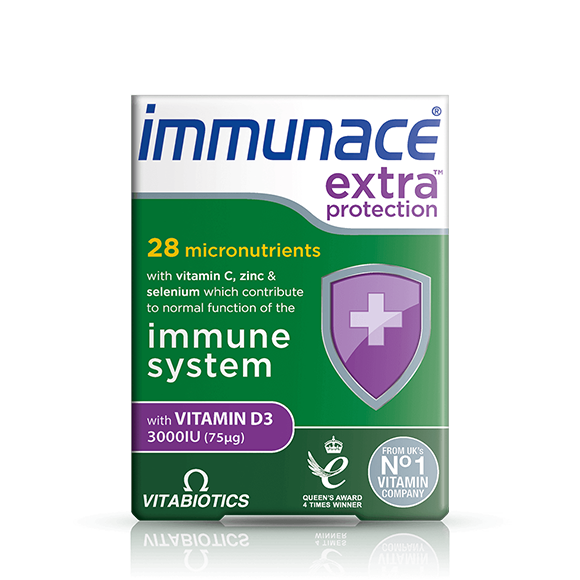Want To Support Your Immune System, The Easy Way?
You may well have heard of the immune system, but do you really know what it is, why it is so important and how best to support it?
Here, we cast a light on the best ways to ensure you can support your immune system, to help you to stay fighting fit!
What Is The Immune System?
Put simply, the immune system is a network of cells, tissues and organs that work together to help keep us healthy. Day to day you probably will not think too much about your immune system but this vital network attacks germs and other harmful substances.
By ensuring you do your utmost to support your immune system, means there is a greater chance of maintaining your usual day today health and wellness.
How To Support Your Immune System
Your diet, supplementation and lifestyle choices can all play a role in supporting your immune system.
There are several vitamins that can help. These include vitamin A, B6, B12, C and D as well as minerals including selenium, zinc and copper. These can be found in various foods, as well as in supplements.
Exercise is also important for immune health, as is getting plenty of good quality sleep, staying at a healthy weight and quitting smoking.
Vitamins To Support Your Immune System
There are an abundance of vitamins that can help support your immune system to work at its optimal level.
Vitamin D is one such vitamin that contributes to a healthy immune system however it is tricky to get your daily recommendation of vitamin D through diet alone. Often dubbed the ‘sunshine vitamin’; we get most if not all of our vitamin D from sunlight.
In the UK though, there is not enough sunlight throughout the autumn and winter months, so the UK’s Department of Health and Social Care encourages us to consider taking a supplement containing 10 micrograms (μg) of vitamin D a day between the months of October to March.
It is in fact vitamin D3 specifically that is needed. Vitamin D3 is made when our skin is exposed to sunlight and is absorbed and used far more easily than the other type of vitamin D; vitamin D2.
Other vitamins that can help support your immune system include vitamin A and vitamin C. Vitamin A contributes to the normal function of the immune system with the NHS recommending that men aged 19 to 64 get 700µg a day and women get 600µg a day.
However, as vitamin A is a fat-soluble vitamin, it is stored by the body, so it isn’t necessary to have every day.
When it comes to vitamin C, it does not just contribute to the normal functioning of the immune system for adults and children, but it also contributes to the normal function of the immune system during and after intense physical exercise.
Plus, vitamin C contributes to the protection of cells from oxidative stress and free radical damage. When we are exposed to sunlight, cigarette smoke, and pollution (to name a few), free radicals are produced in excess.
According to the NHS, adults aged between 19 and 64 should get 40mg of vitamin C every day.
Next up are B vitamins. There are eight B vitamins in total, however it is vitamins B6, B12 and B9 (folic acid) that should be considered to support the immune system. B vitamins are water soluble, which means our body does not store them, so we must get an adequate amount each and every day, either through food and/or supplementation.
Whilst vitamin B12 can be obtained through food, it is mostly found in animal products, so anyone following a vegan diet may struggle to meet their daily intake. This is where a supplement can come in useful such as Vitabiotics Ultra Vitamin B Complex. It provides all the eight essential B vitamins, with 50µg of B12.
Vitamin B6, also known as Pyridoxine, does not just support our immune system, it also supports the functioning of our nervous system as well as contributing to a reduction in tiredness and fatigue.
The NHS state that male adults aged 19 to 64 require 1.4mg per day whilst women need 1.2mg per day






Comments (0)